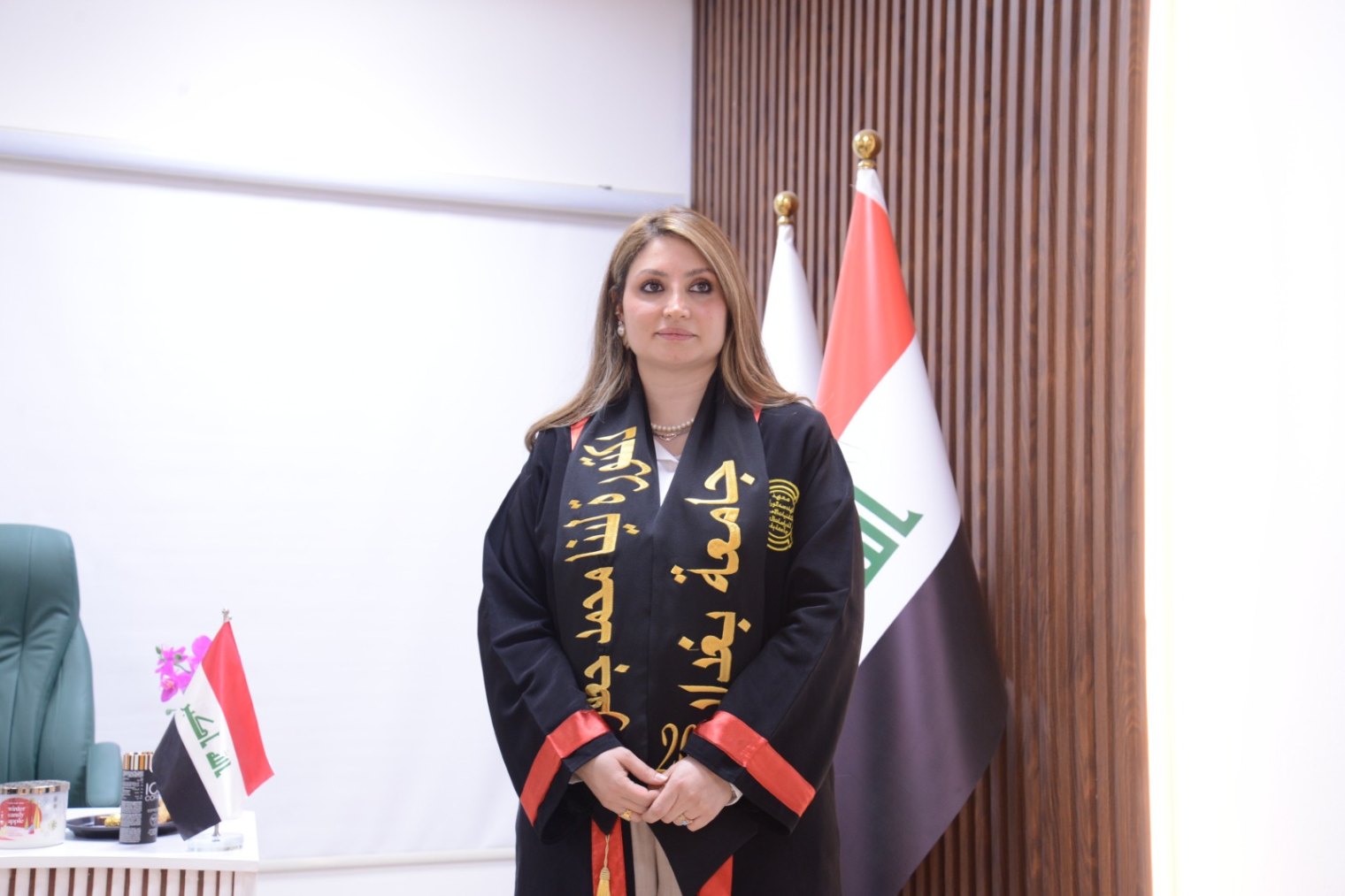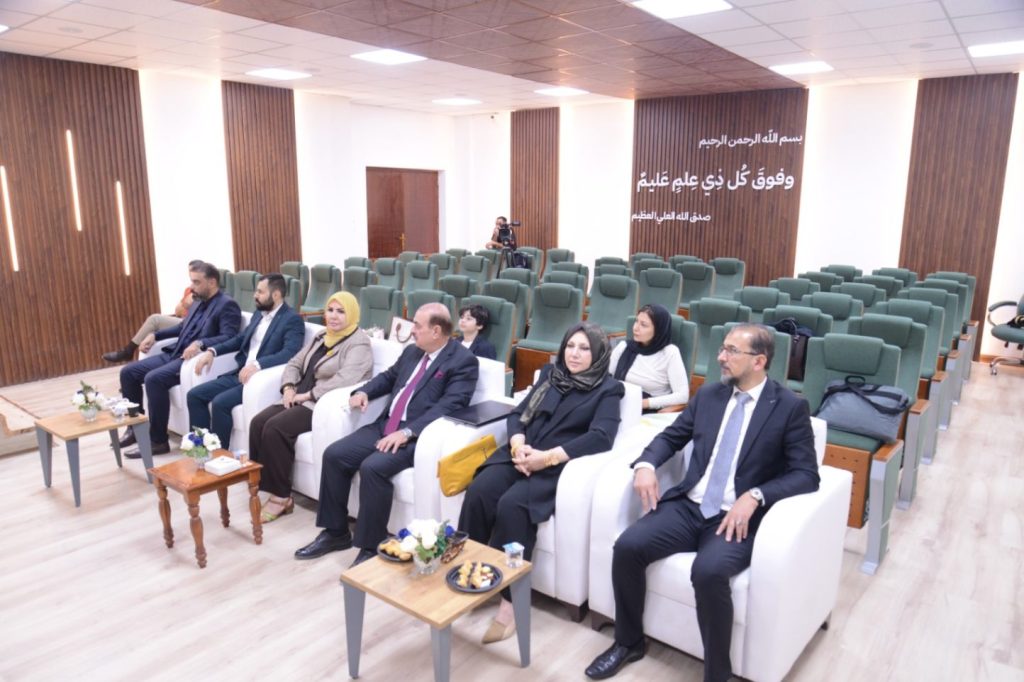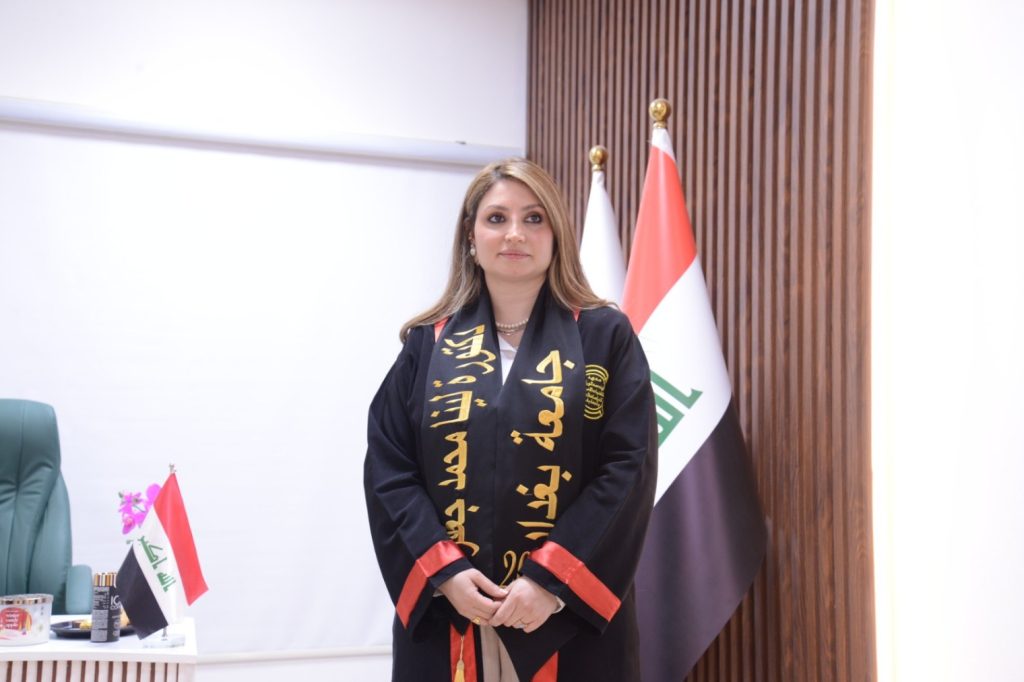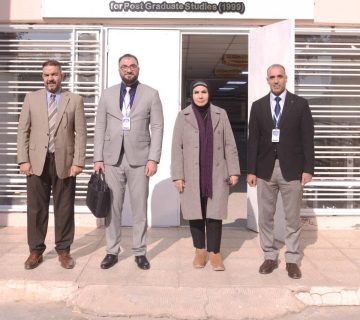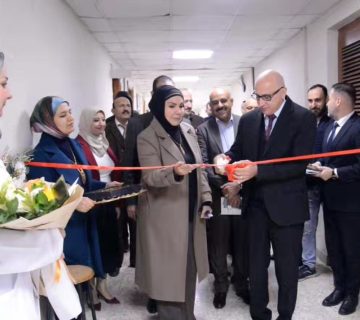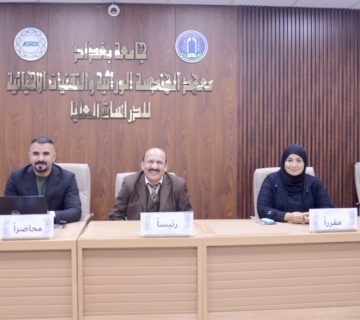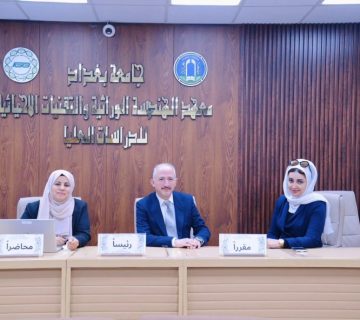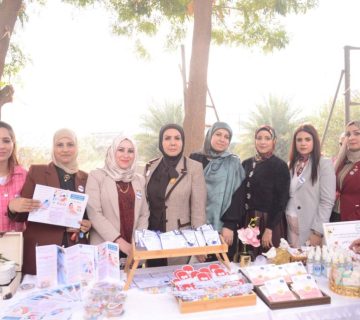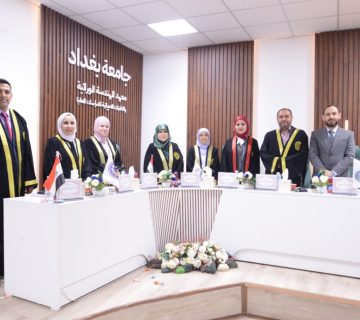The Institute of Genetic Engineering and Biotechnology for Postgraduate Studies / University of Baghdad discussed the doctoral dissertation of Lina Mohammed Jaafar Sadiq, entitled:
“Molecular Analysis of the Relationship Between Burn Severity and the Production of Pyocins by Pseudomonas aeruginosa,” supervised by Asst. Prof. Dr. Ahmed Harbi Ibrahim.
The study aimed to investigate the interaction between the SOS box system and the Pseudomonas aeruginosa genes PrtN, PA0906, and recA, as well as to assess the effect of the PrtN gene on the SOS system. It also sought to estimate the variation in gene expression of certain pyocins before and after exposure to SOS system inducers.
The dissertation recommended further exploration of the molecular mechanisms that generate diverse responses to different stress inducers, with a particular focus on understanding why pyocin production decreases after prolonged exposure to a diode laser (20 minutes), while other stressors increase production.
It emphasized studying the therapeutic potential of stress-induced pyocins derived from Pseudomonas aeruginosa in the treatment of antibiotic-resistant infections, including conducting in vivo experiments to evaluate their efficacy and safety, as well as carrying out a comprehensive profiling of the complete pyocin set produced under different stress conditions. This would involve identifying and characterizing specific pyocin types and determining their antibacterial activity.
The dissertation also recommended analyzing the potential synergistic effects of combining multiple stressors (such as UV light and Mitomycin C) on pyocin synthesis and gene expression in Pseudomonas aeruginosa.
Finally, it stressed the importance of investigating the long-term consequences of stress-induced pyocin production on Pseudomonas aeruginosa populations, including its possible effects on bacterial fitness, evolution, and the development of antibiotic resistance.

